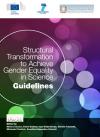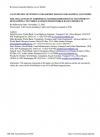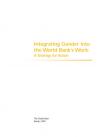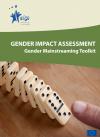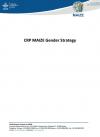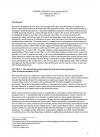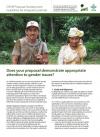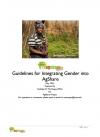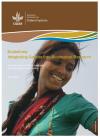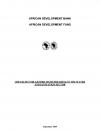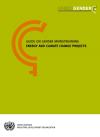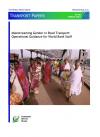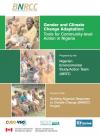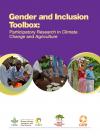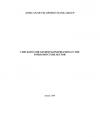Resources
08 Feb 2017
European Commission, 2015: Guidelines to help science organizations develop and implement policies to promote women’s participation in science, including collecting data and monitoring gender equality, engaging leaderships, policy-making and institutionalisation, etworking and empowering women to take action, integrating gender in education and research, and communications.
27 Oct 2016
John Riverson, Mika Kunieda, Peter Roberts, Negede Lewi and Wendy M. Walker, 2005: Paper describes steps which are being taken by the World Bank to improve the effective meeting of gender needs in transport, summarizing examples of good practice and illustrating their application
in Ethiopia.
REGIONS: Sub-Saharan Africa
12 Oct 2016
World Bank, 2002: Strategy identifies gender-related barriers to poverty reduction and sustainable development; and recommends appropriate actions to reduce these barriers; it is intended to establish an enabling environment
to foster country-led, country-specific strategies for changing the gender patterns that are costly to growth, poverty reduction, and human well-being.
12 Oct 2016
European Institute for Gender Equality (EIGE), 2016: Toolkit provides guidance for government and other institutions to assess whether their policies, programmes, action plans and projects reduce, maintain or increase the gender inequalities between women and men.
12 Oct 2016
CGIAR: Strategyoutlines the process and approach that the MAIZE program has adopted in order to contribute to and promote gender equality and equity in agricultural research for development (R4D) related to maize-based systems.
12 Oct 2016
CGIAR, 2013: Gender strategy lays out approaches to improve how women are included in livestock agriculture and aquaculture, and to improve the equity of the social and institutional environments in which value chains function to enhance the range and quality of choices and outcomes poor women and men have within them.
10 Oct 2016
Center for International Forestry Research (CIFOR), 2013: Short guide will provide you with some key questions to help ensure your proposal to CIFOR demonstrates appropriate attention to gender issues, and includes recommendations to identify improvements for forest policies and practices that offer the best options for all parties and aim to address gender imbalances.
06 Oct 2016
AgShare, 2015: Guidelines for integrating a gender perspective into the different components of the AgShare methodology, a model that provides strategies for a coherent institutional approach to teaching and research in order to create a scalable and
sustainable method of filling critical resource gaps in African MSc agriculture curriculum.
REGIONS: Sub-Saharan Africa
06 Oct 2016
CGIAR, 2015: Intended for biophysical research scientists, specifically working on dryland systems, these guidelines for integrating gender into biophysical research propose simple and practical steps for taking gender into account throughout the research project cycle.
06 Oct 2016
African Development Bank, 2009: Checklist is intended to guide WASH project managers and implementation teams in identifying, preparing, appraising, implementing, monitoring and evaluating gender-sensitive drinking water supply & sanitation programs and projects, and support national governments in
analyzing and implementing programs and projects.
REGIONS: Sub-Saharan Africa
29 Sep 2016
UNIDO, 2014: Guide provdes a general background of gender concepts and the gender dimensions
of sustainable energy projects, as well as a step-by step roadmap of gender mainstreaming
in the different stages of energy and climate change project cycles.
29 Sep 2016
World Bank, 2010: Paper aims to provide guidance for transport and gender specialists on how to mainstream gender-related considerations into road transport projects to improve development effectiveness and
sustainability and to reduce gender inequality. It highlights ways in which gender affects and is affected by transport policies and projects and provides practical
solutions.
23 Sep 2016
Nigerian Environmental Study/Action Team (NEST), 2011: Toolkit provides resources on the basic concepts of gender mainstreaming, analysis and
planning; Increases awareness and reduces the gender bias that informs individual attitudes towards gender equity work; and provides basic knowledge and tools to effectively mainstream gender equity.
REGIONS: Sub-Saharan Africa
23 Sep 2016
CCAFS/CARE International/ICRAF, 2014: Manual introduces participatory strategies and tools for research to guide the implementation of climate smart agriculture and efforts to achieve food security in rural communities, intended for NGO practitioners and program designers interested in diagnostic and action research for gender sensitive and socially inclusive climate change programs
23 Sep 2016
African Development Bank, 2009: Checklist provides a tool for effective mainstreaming of gender in infrastructure programs and projects to guide task managers and implementation teams to plan, design, implement, monitor and evaluate gender-sensitive and responsive infrastructure projects.
REGIONS: Sub-Saharan Africa
- 1 of 3
- next ›




